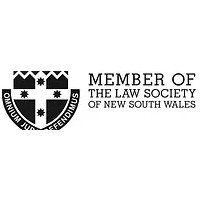Best Guardianship Lawyers in Wahroonga
Share your needs with us, get contacted by law firms.
Free. Takes 2 min.
List of the best lawyers in Wahroonga, Australia
About Guardianship Law in Wahroonga, Australia
In Wahroonga, Australia, Guardianship law refers to the legal framework determining the provision for someone (the 'guardian') to make personal, health, and sometimes financial decisions on behalf of another person (the 'ward') who lacks capacity or is incapable of making these decisions. The "Guardianship Act 1987" of New South Wales governs guardianship arrangements in Wahroonga. It approaches guardianship with respect to the welfare and best interests of the ward, ensuring fair decision-making processes that respect and promote the rights, dignity, and autonomy of an elderly, infirm, or incapacitated person.
Why You May Need a Lawyer
Engaging a lawyer specialising in Guardianship law can be essential under various circumstances. If the potential ward contests the guardianship petition, legal expertise can guide you through the complex court proceedings. Also, lawyers are invaluable when it’s necessary to prove the ward’s incapacity, negotiate with relatives who contest the guardianship, understand the intricacies of guardianship responsibilities, and ensure the guardian's decisions align with legal requirements. Ensuring you get professional legal advice is important in safeguarding the rights and wellbeing of all involved parties.
Local Laws Overview
The key local law governing Guardianship in Wahroonga is the "Guardianship Act 1987" of New South Wales. The law stipulates that a guardian may only be appointed if the person in question is incapable of making reasonable judgments due to disability. The law outlines that the proposed guardian must have the appropriate skills, knowledge, and temperament to make decisions in line with the ward’s best interests. It also states that any decision must aim to least restrict, as far as possible, the freedom of decision and action of the ward.
Frequently Asked Questions
Who can apply for Guardianship?
Any interested party, such as a family member, a friend, or even a public officer from the New South Wales Trustee and Guardian, can apply for Guardianship if they reasonably believe that the person needs a guardian.
What powers does a Guardian have?
Depending on the orders made by the court, a Guardian may have the ability to make personal or health decisions on behalf of the ward. However, they usually do not manage the financial affairs unless stated otherwise.
Can Guardianship be contested?
Yes, a Guardianship order can be contested. This requires court proceedings, and it is advisable to have legal counsel's representation in such circumstances.
How long does the Guardianship last?
The duration of the Guardianship will be specified in the Guardianship Order. The court usually grants guardianship for a specific period, and it may be extended upon application prior to its expiration.
Can a Guardian be replaced?
Yes, a Guardian can be replaced if the court deems it to be in the best interest of the ward due to changed circumstances or if the guardian is not fulfilling the assigned duties properly.
Additional Resources
The New South Wales Civil and Administrative Tribunal (NCAT) provides comprehensive information on guardianship applications, hearings, and procedures. The New South Wales Trustee and Guardian can also be approached for information and support regarding Guardianship. The Legal Aid Commission of New South Wales offers legal advice and possible representation for those facing financial hardship.
Next Steps
If you need legal help in Guardianship matters, it's advisable to consult a lawyer specializing in guardianship law. They can navigate you through the complex legal process, help you prepare your case, and provide you with assistance for a court hearing, if required. It's also recommended to educate yourself about the rights, responsibilities and challenges associated with being a guardian, and this can be done through resources provided by the Legal Aid Commission of New South Wales and the New South Wales Civil and Administrative Tribunal.
Lawzana helps you find the best lawyers and law firms in Wahroonga through a curated and pre-screened list of qualified legal professionals. Our platform offers rankings and detailed profiles of attorneys and law firms, allowing you to compare based on practice areas, including Guardianship, experience, and client feedback.
Each profile includes a description of the firm's areas of practice, client reviews, team members and partners, year of establishment, spoken languages, office locations, contact information, social media presence, and any published articles or resources. Most firms on our platform speak English and are experienced in both local and international legal matters.
Get a quote from top-rated law firms in Wahroonga, Australia — quickly, securely, and without unnecessary hassle.
Disclaimer:
The information provided on this page is for general informational purposes only and does not constitute legal advice. While we strive to ensure the accuracy and relevance of the content, legal information may change over time, and interpretations of the law can vary. You should always consult with a qualified legal professional for advice specific to your situation.
We disclaim all liability for actions taken or not taken based on the content of this page. If you believe any information is incorrect or outdated, please contact us, and we will review and update it where appropriate.








